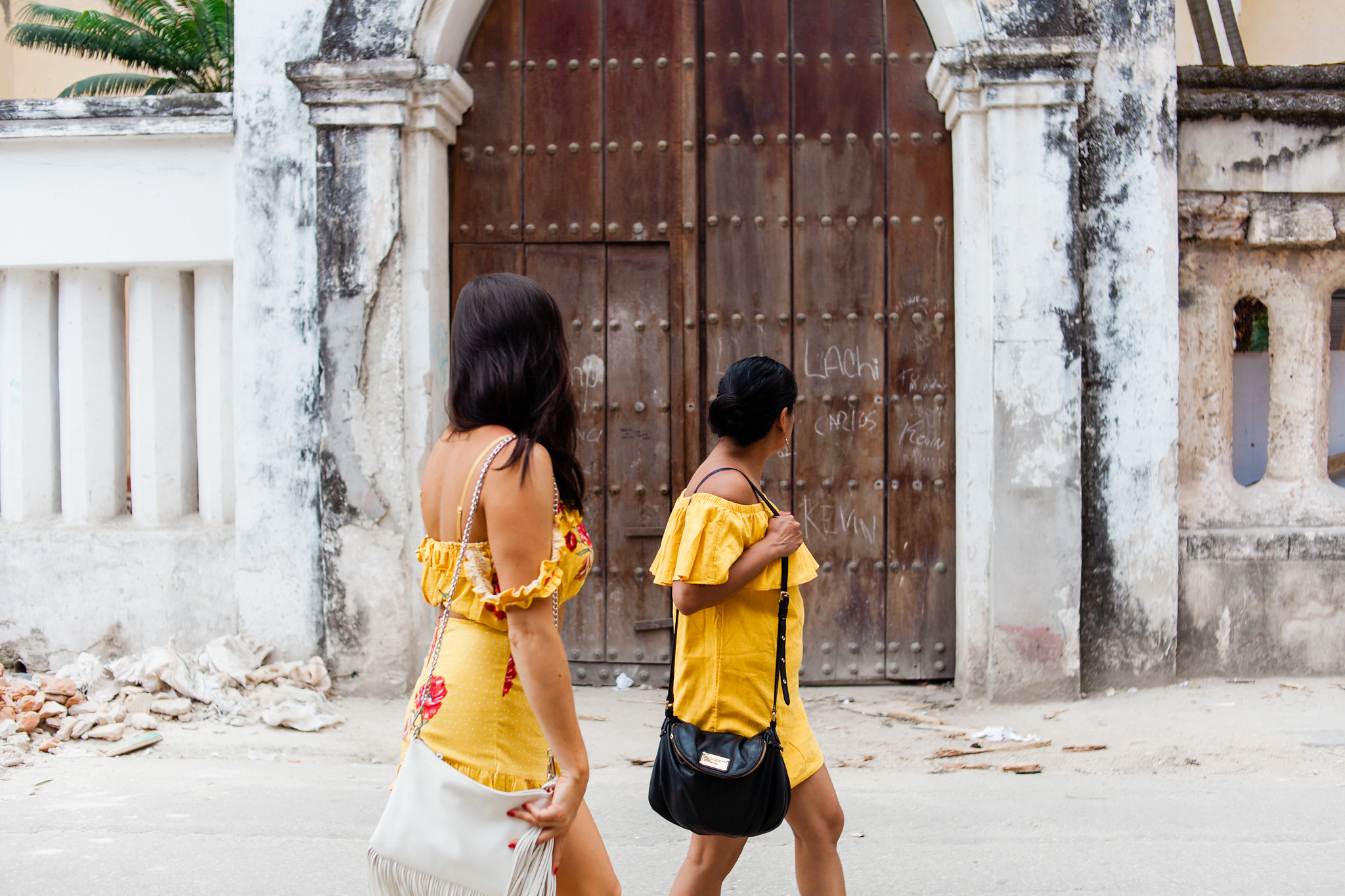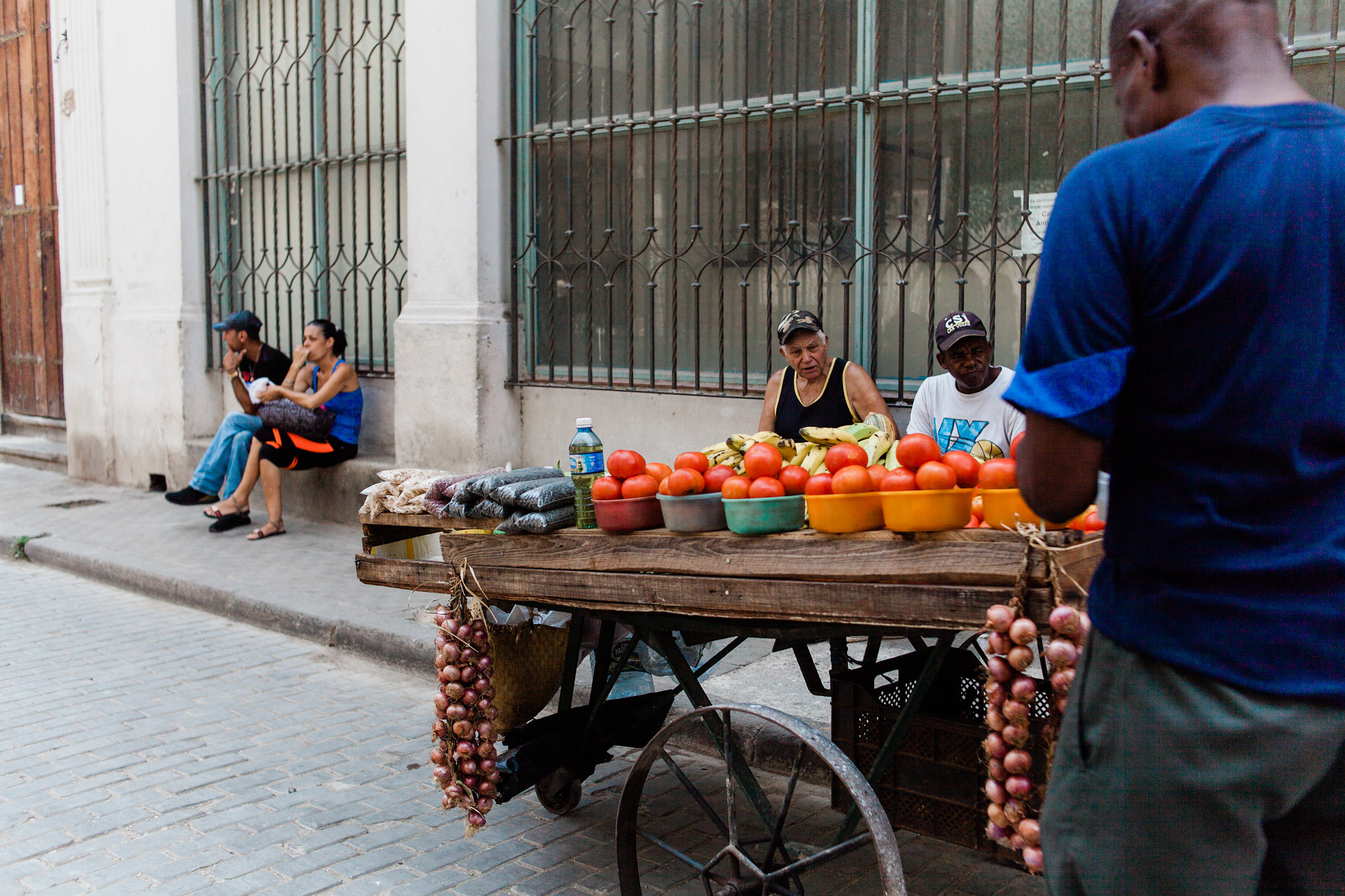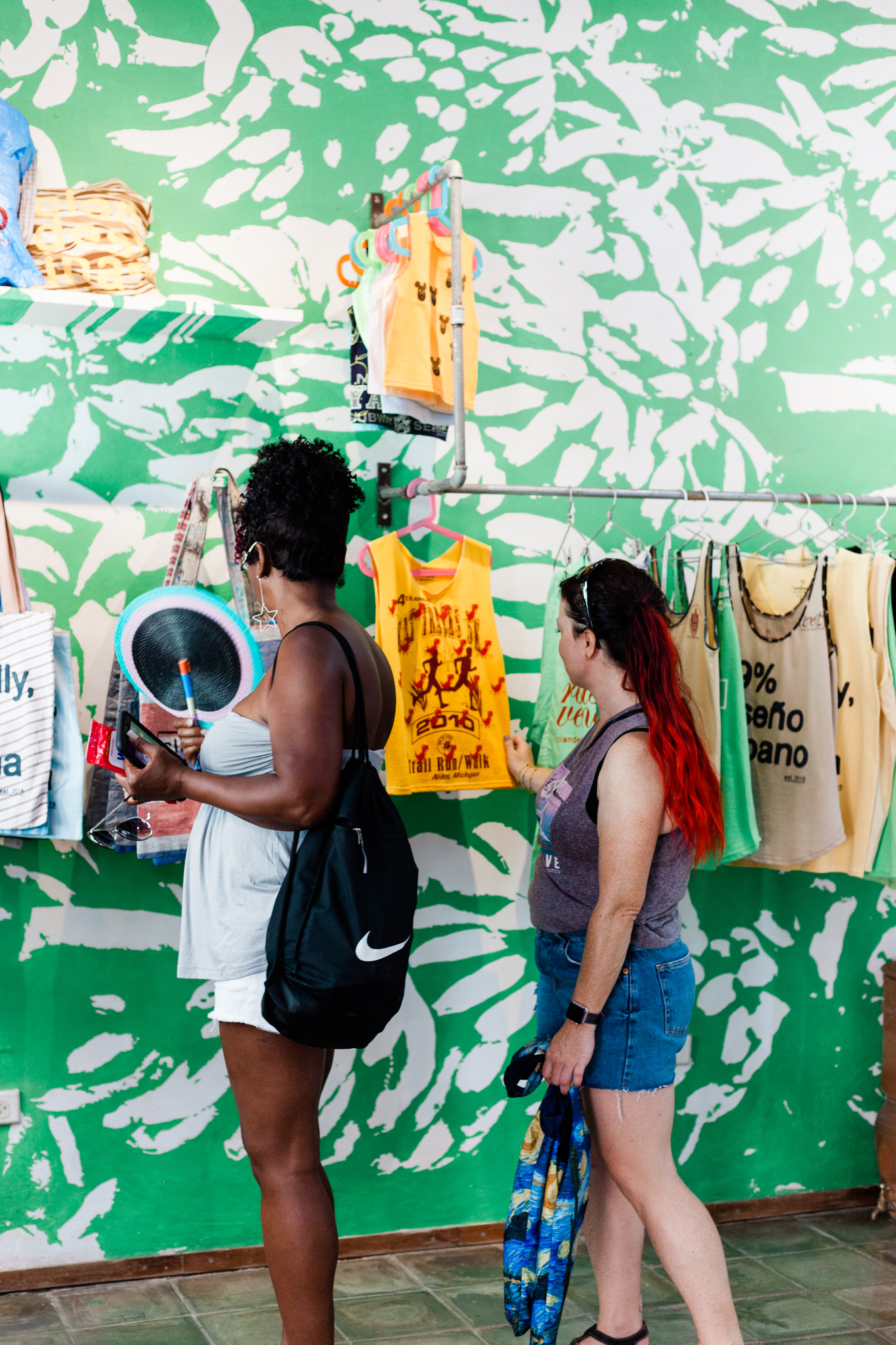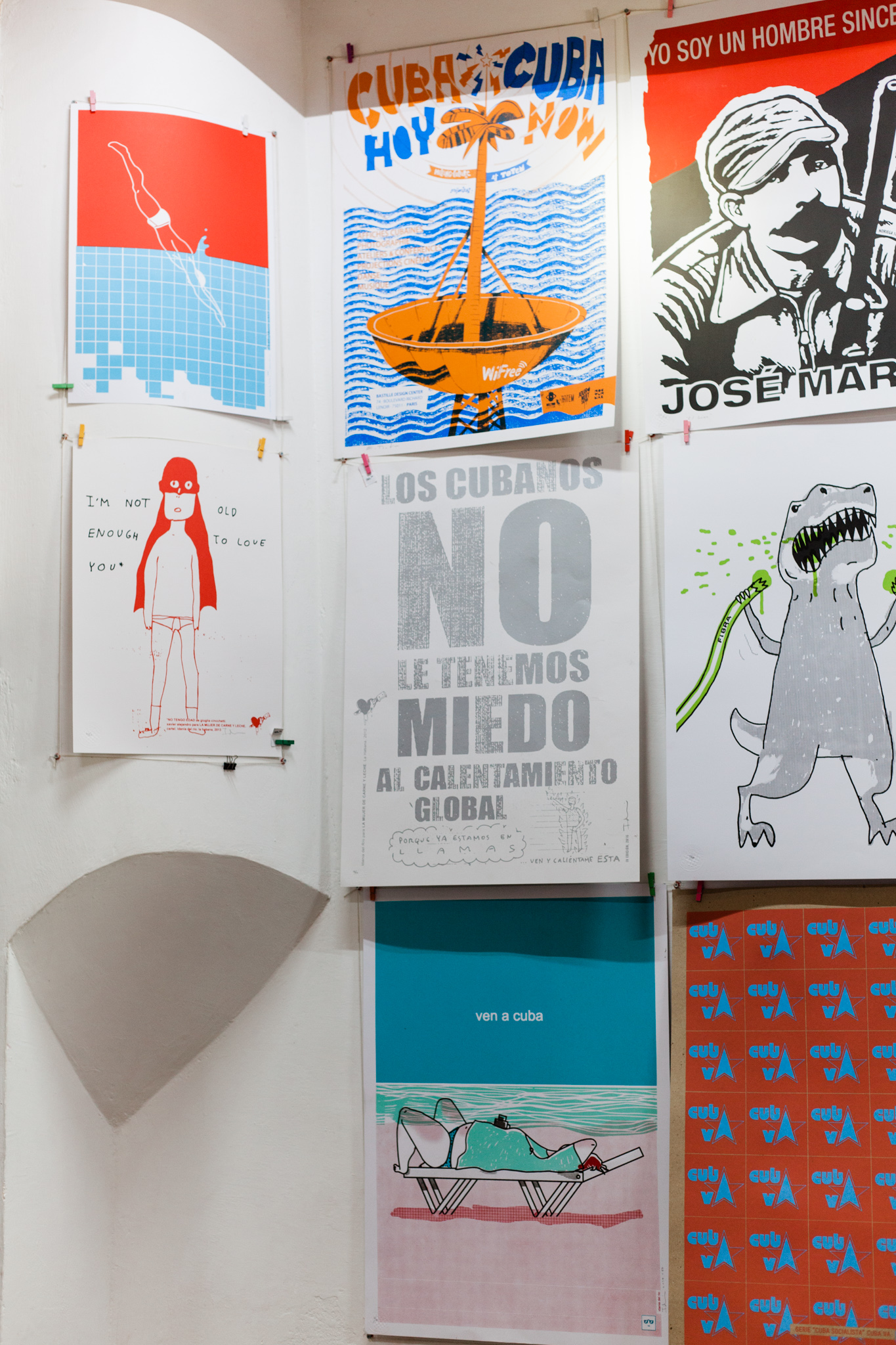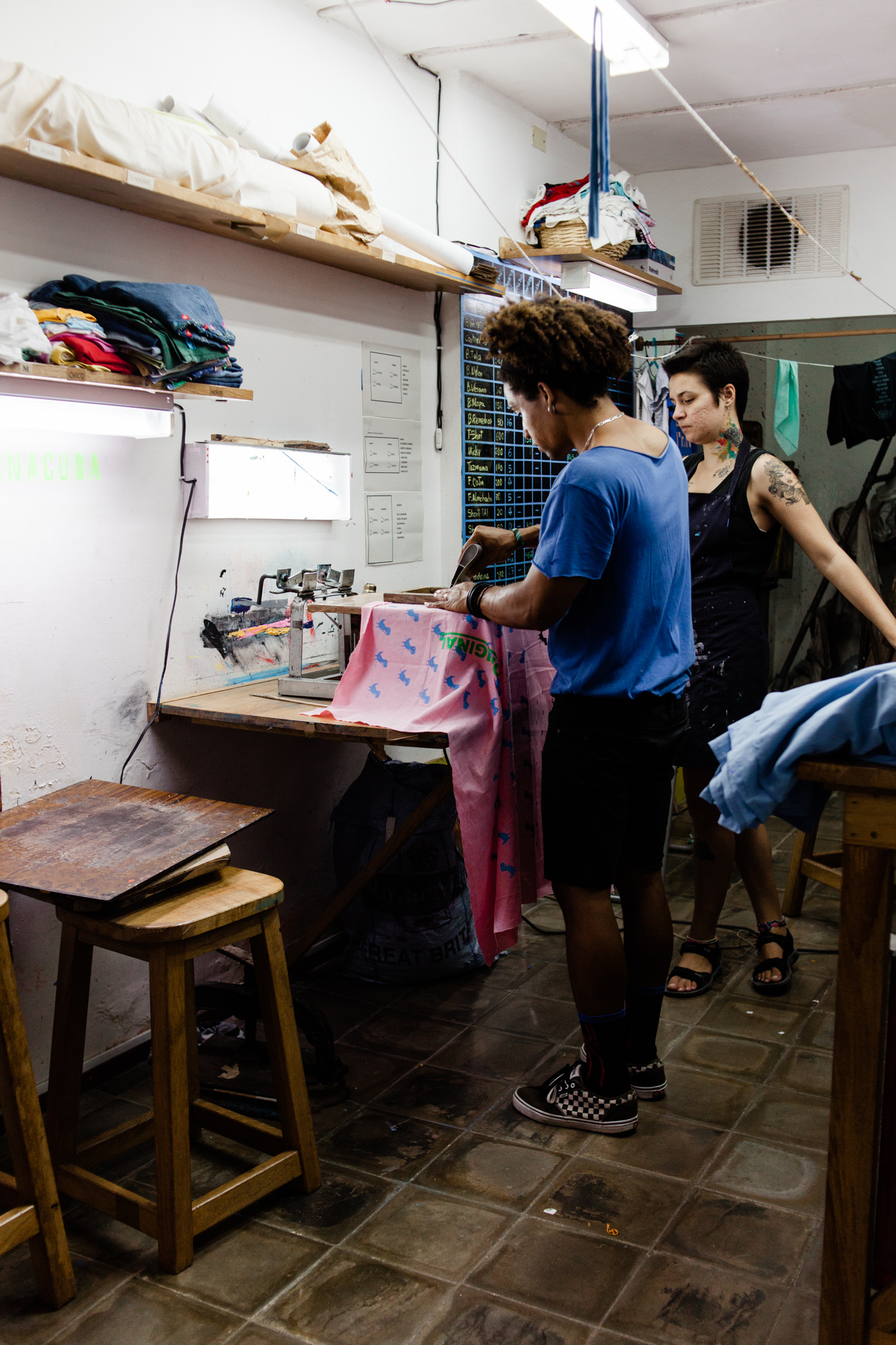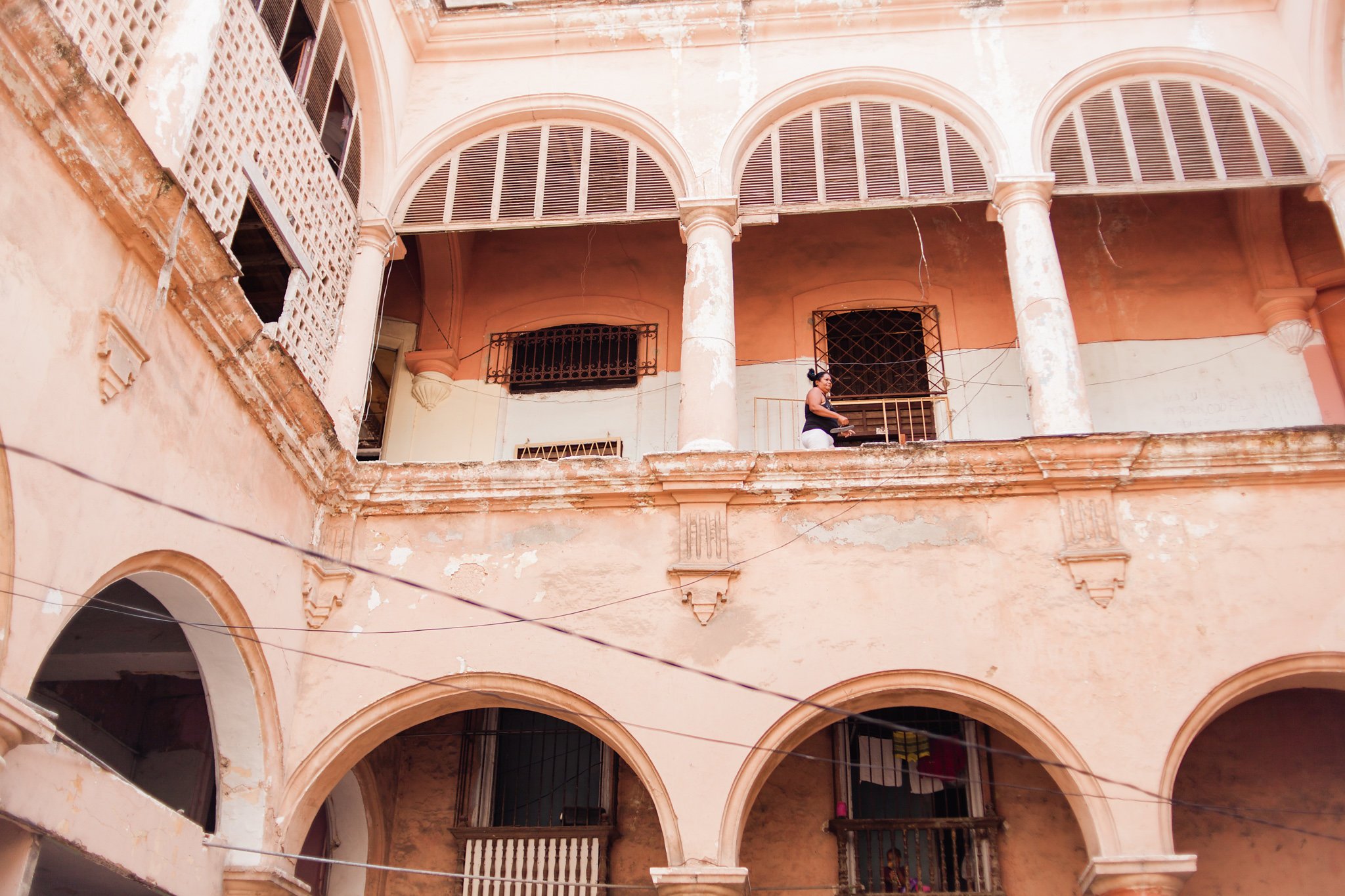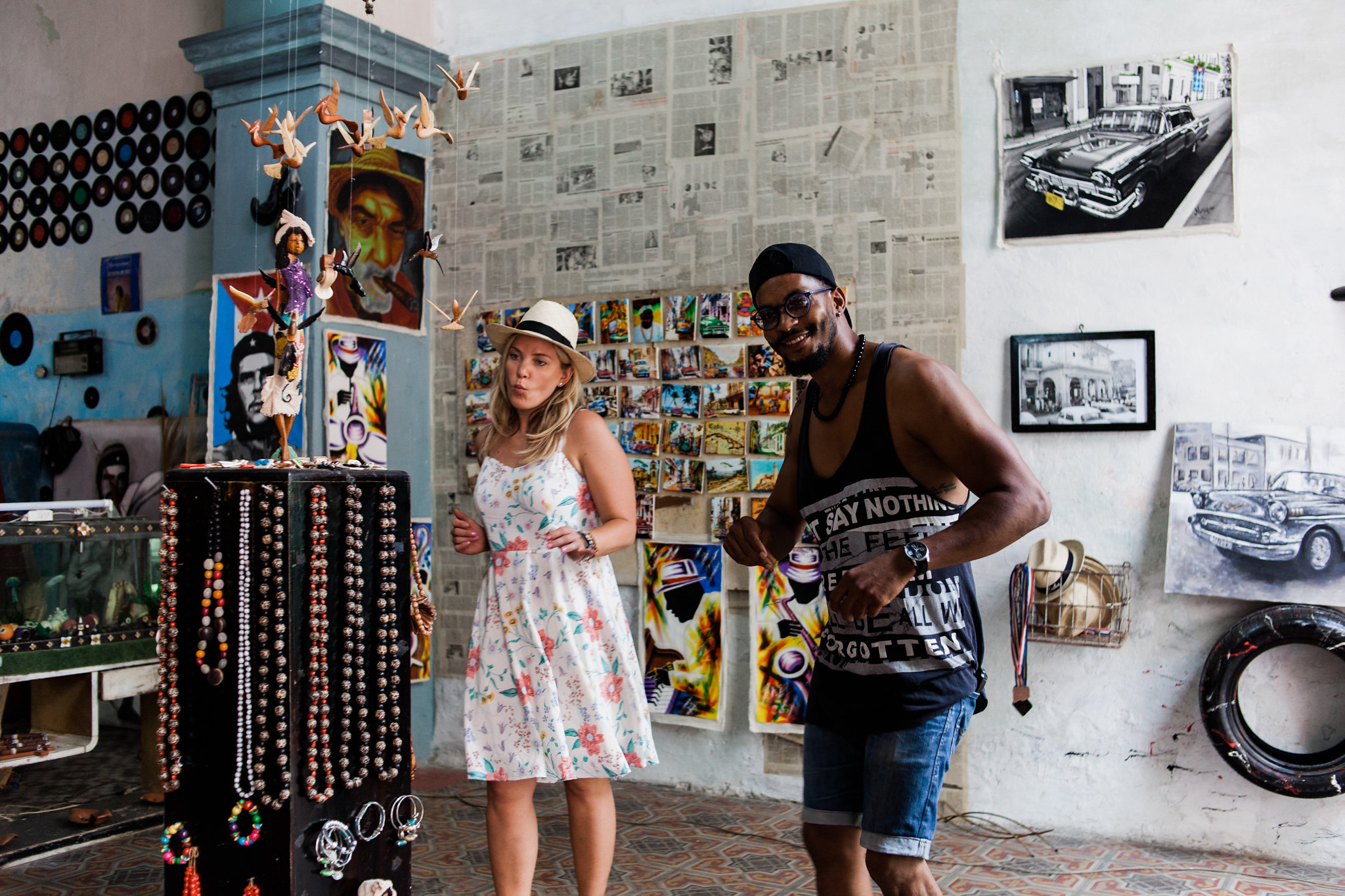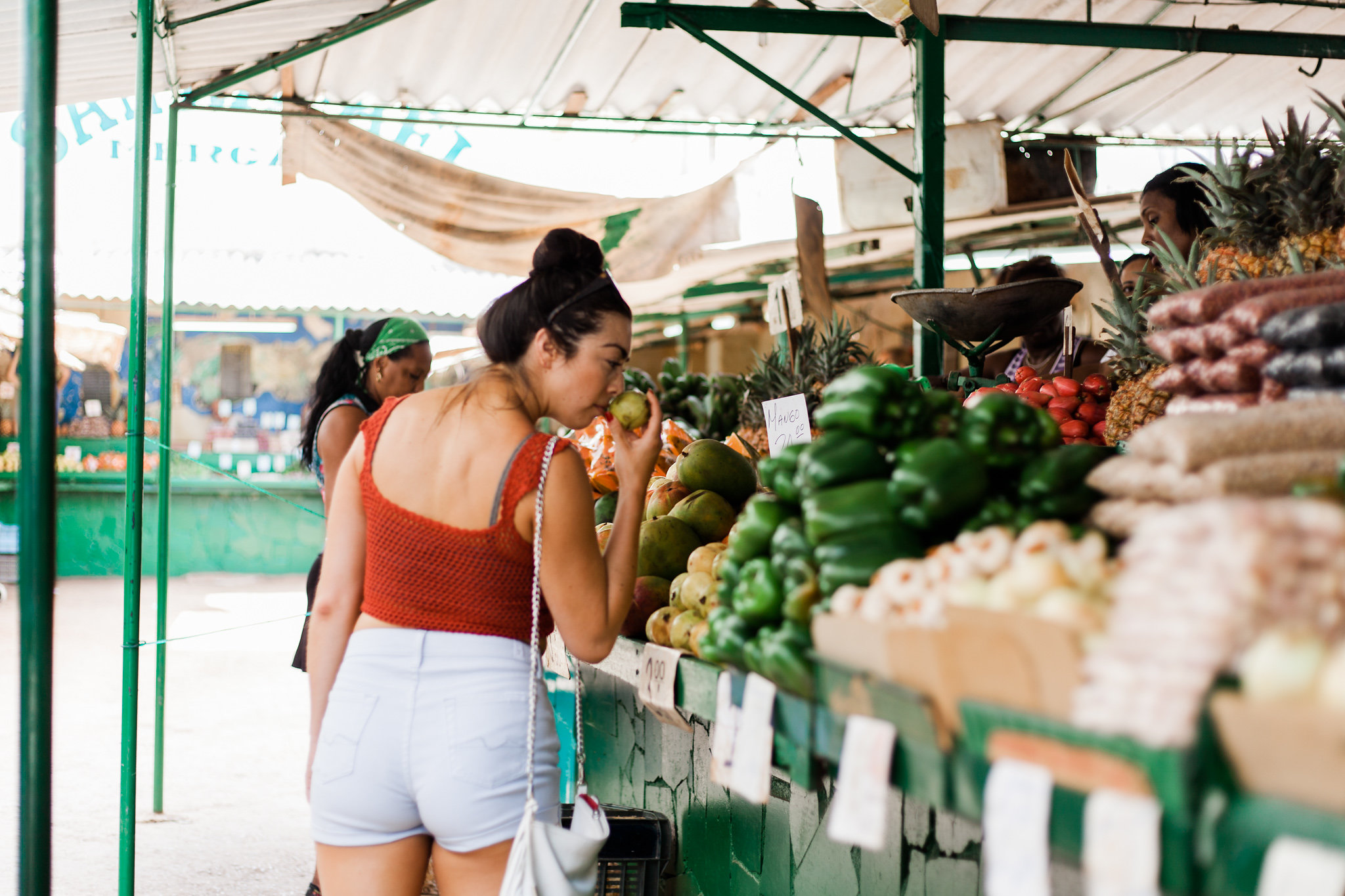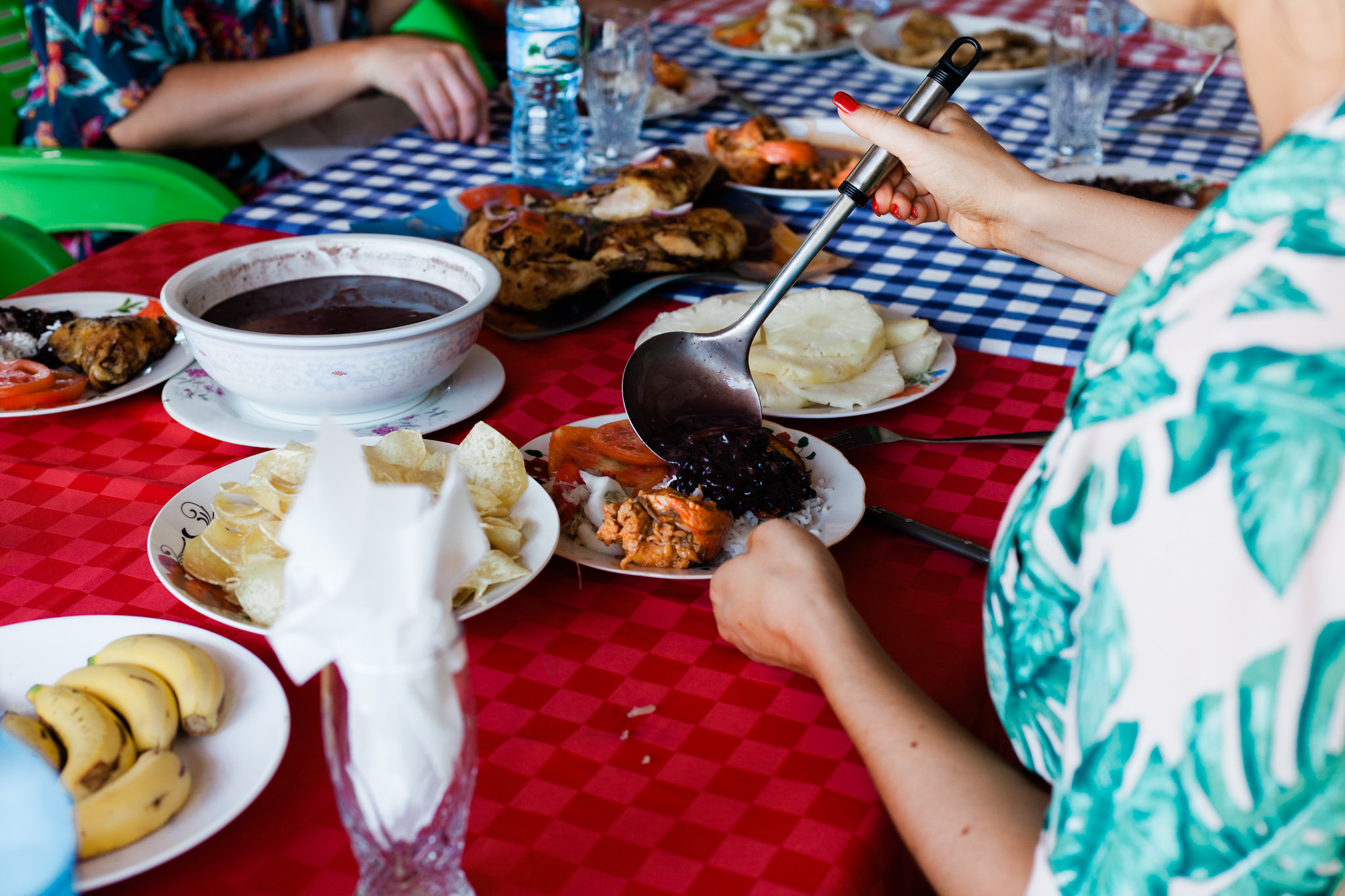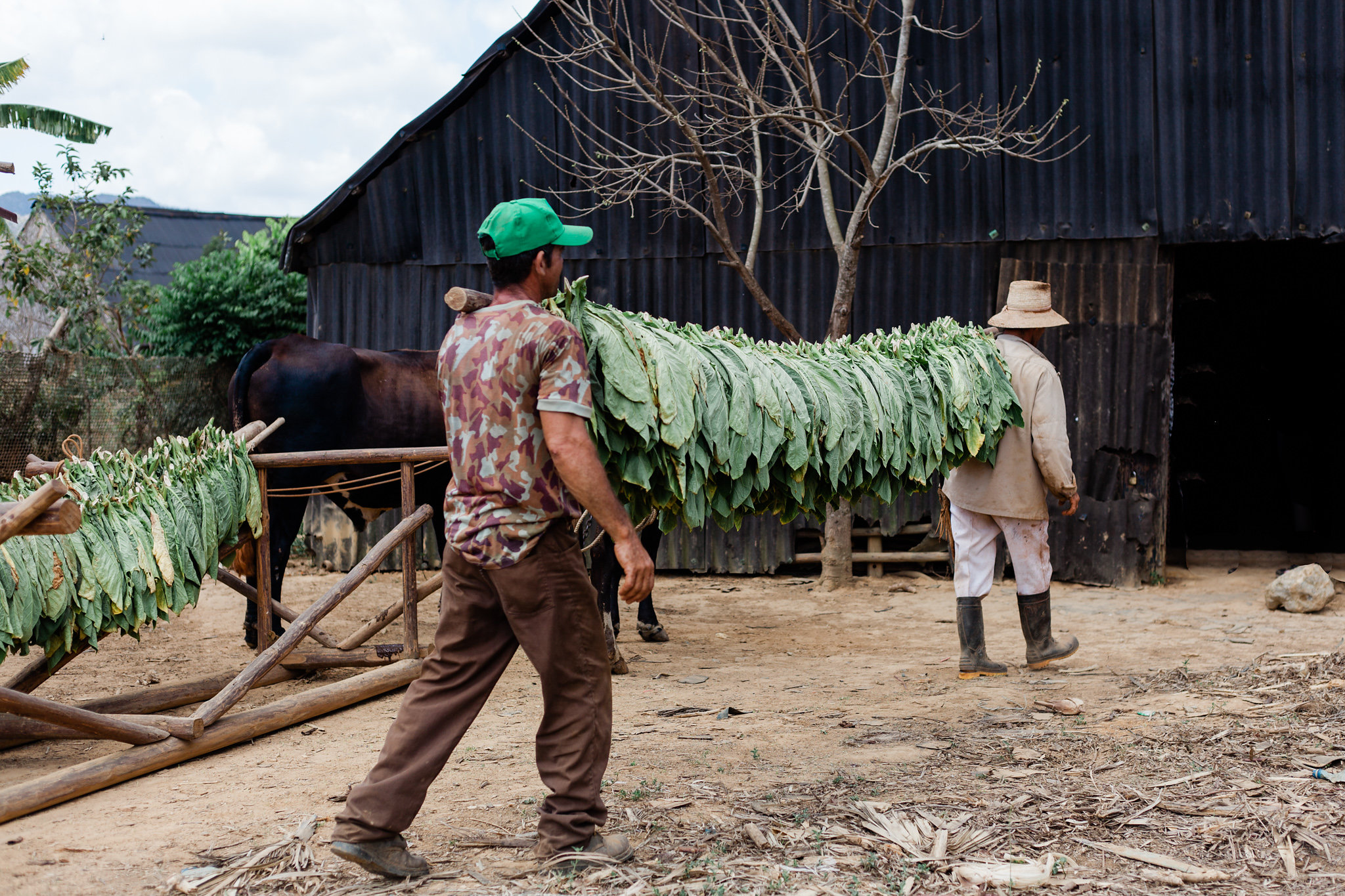Classic American cars and pastel colored buildings sound like a perfect photo backdrop. But what those photos don’t show are the cracked sidewalks, garbage-filled streets, food shortages, dilapidated infrastructure, and the fact that most of the population cannot live comfortably off their wages.
Over the five years of visiting Cuba, I’ve heard the following cringe-worthy phrases more times than I can count: “I don’t want Cuba to change,” or “I want to see Cuba before it becomes Americanized.” When I hear someone make these statements, it feels as if they’re saying that progressive change in Cuba is somehow a bad thing; as if keeping the Cuban people locked out of the world economy is somehow better.
Castro’s regime has controlled essentially all aspects of Cuban life for the past 50+ years. Media is censored, internet access is very limited (although in December of 2018, internet plans on cell phones rolled out), and while health care is free, not all clinics or hospitals always have the necessary supplies available to treat people. Even though Cuban citizens are rationed food essentials every month, they’re in meager portions and it’s not enough food to last until the next month. In December of 2010, Cuba cut toiletries from the monthly rations. Now Cubans purchase them from a state store or on the black market.
The average monthly salary of a state worker is only about $29 a month. And despite this low monthly wage, the cost for everyday household items can get quite expensive. For example, shampoo runs about $6 per bottle, four rolls of toilet paper costs about $3, and a new pair of jeans costs about $40.
The truth is, daily life is a constant struggle for most Cubans living on the island. Food shortages happen quite frequently in Cuba and preparing a simple meal can often prove difficult. Gathering ingredients, for instance, for a meal can sometimes take hours, as most have to search (often on foot) for basic ingredients around various markets. And sometimes you have to walk several blocks to get to each one. When you do finally find the eggs, bread, milk, and aceite, sometimes you have to wait in long lines to purchase them. If you get lucky with only several people in line ahead of you, you’ll wait maybe 10-15 minutes. But if there are a lot of people ahead of you, be prepared to wait up to an hour or longer.
Tourists don’t often see beyond the old glamour of Old Havana or take the time to immerse themselves and truly learn about the way people live. And while the island’s complex and layered history is fascinating, if you take the time, you’ll learn that Cubans are eager and ready for change.
Cuba Is Already Changing
In February of 2008, Fidel Castro officially stepped down and Raul Castro rose to power and loosened up some of the restrictions that were in place for over 50 years. He opened up a small private sector of the economy and worked to re-establish diplomatic relations with the United States. Up until 8 years ago, the only private businesses Cubans could operate were casas particulares (guesthouses), paladares (restaurants inside homes), or taxis. Now, the new laws allow Cubans more private entrepreneurship, and with the opportunity of being able to start a private business, new restaurants and retail stores have also opened up. Cuban chefs are bringing international flavors to the Cuban table (the chefs at restaurant Jama fuse Japanese and Cuban flavors), the very first design store (Clandestina - pictured below) opened up in Havana in 2015, and people are renovating their homes to be able to rent them out to tourists.
Cubans Want to Be Included in the Global Community
With Cubans being able to travel outside of the country for tourism now, some people travel to Europe and even the U.S., further proving that Cubans are ready to welcome outside culture and information. They even have a very intricate underground network of distributing the latest and most current television, movies, music, and other online entertainment. The paquete semanal (weekly package) is delivered in the form of a USB stick and distributed around the island to many Cubans for a fee. This system of distributing information is coordinated by one man named Dany Paquete and is entirely on the black market. And it’s this weekly package that connects many Cubans to the outside world. It has worked so well that the U.S.-based electronic group Major Lazer put their entire discography on the paquete 2 weeks ahead of their scheduled concert, in hopes for a good turnout. The band wasn’t sure that Cubans had even heard of them, but the paquete worked: over 400,000 people were in attendance at the concert.
A McDonald’s or Starbucks Isn’t Going To Take Away from the Cuban Culture
Due to the trade embargo the U.S. currently has on Cuba, it’s not possible for U.S. chains to open up shop in Cuba. But even if the U.S. did lift the embargo, it doesn’t mean that a McDonald’s and Starbucks would pop up on every corner. Just like these chain restaurants don’t make Paris or Rome less appealing, they wouldn’t take away from the Cuban culture. The sense of community and warmth that Cubans share isn’t going to disappear. The structure of the homes in Cuba are set up in a way that makes it easy to converse with your neighbors, partake in gossip, and people watch. People wouldn’t suddenly stop playing dominoes in the street with their neighbors or stop sitting at the park to chat. Their kindness and helpful nature wouldn’t simply disappear with the arrival of a chain store.
People and Societies Should Evolve When They Are Ready for It
I’ve had conversations with local Cuban friends who’ve expressed that the people are ready for a change. They want opportunities, they want to be able to purchase the latest clothes and shoes, and they want to be able to express themselves politically. Sure, not every single Cuban may want this, but the surge in private enterprise over recent years shows that a lot people are ready for a form of capitalism.
On a guided architectural walk around Old Havana. Learning about history, culture, and politics through architecture.
It’s okay to be curious about a place and want to visit, but saying that you don’t want Cuba to change can come off a little insensitive. Instead of wanting to see Cuba “before it changes,” let’s support them during this transitional time.
And how do we support them? One way is by traveling to Cuba. Yes, it is safe to visit and legal for American citizens. While you’re there, visit as many privately owned establishments as possible, and actively take part in the discussions of the people who live there. Hear what they have to say about their native land, about their struggles and joys, about the ongoing of their daily life. By starting a dialogue, whether it be with your casa particular host or your taxi driver, it can be a truly rewarding experience for all the people involved. Rather than wish Cuba stay “in the past,” help the island nation move forward by bridging gaps, shattering stereotypes, and exchanging cultures.
Do you want to visit Cuba? Check out our group trips or send an email for private itineraries. You’ll share meals and have conversations with creatives and entrepreneurs, learn about what inspires local artists, and dance the night away at the best nightlife spots. Travel with like-minded people and have a great damn time.
All photos by Janette Casolary for Fisheye Journeys.
Author: Rocio Yepez
Founder of Fisheye Journeys
Photo by Janette Casolary
It's not always easy to track down Rocio. She's always been a free spirit, but since her epic solo backpacking trip, she's been consuming life in rather large quantities! Four months of travel adventure in southeast Asia will do that to a person!
By trade, she's a lifestyle, portrait, and travel photographer. Fascinated by the give and take between people, she aims to capture that magic instant BETWEEN moments - the "passing" moments, where little is offered, but so much is revealed.
When she's not capturing life on film, she may be in acting class, at the bookstore, or engaged in a class to learn something completely new. She has a bachelor's degree in psychology and a strong mind to earn tenure as a permanent student at community college. If you see her flat-footed, be sure to snap a picture, that's about as rare as seeing her in a bad mood. She's constantly moving, exploring, discovering, and growing.


